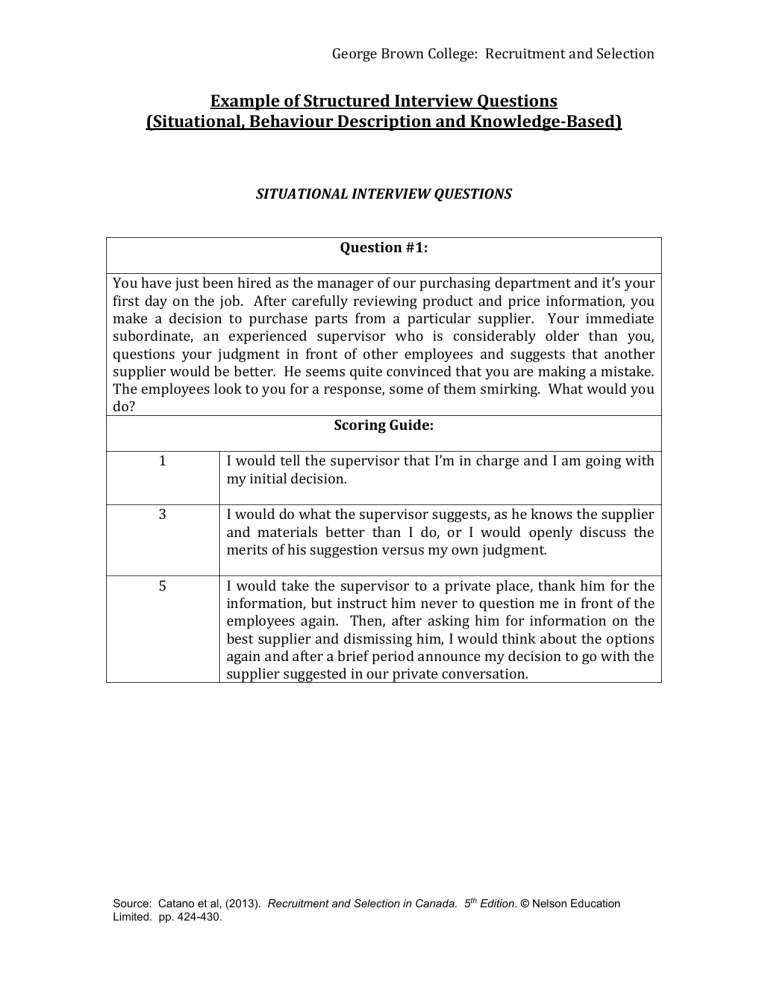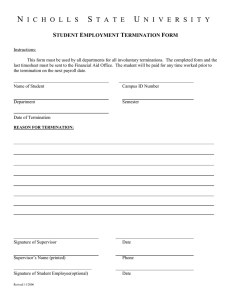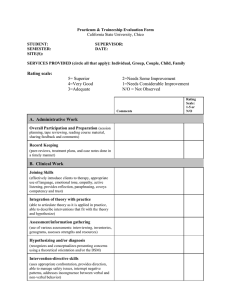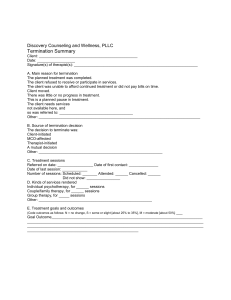
George Brown College: Recruitment and Selection Example of Structured Interview Questions (Situational, Behaviour Description and Knowledge-Based) SITUATIONAL INTERVIEW QUESTIONS Question #1: You have just been hired as the manager of our purchasing department and it’s your first day on the job. After carefully reviewing product and price information, you make a decision to purchase parts from a particular supplier. Your immediate subordinate, an experienced supervisor who is considerably older than you, questions your judgment in front of other employees and suggests that another supplier would be better. He seems quite convinced that you are making a mistake. The employees look to you for a response, some of them smirking. What would you do? Scoring Guide: 1 I would tell the supervisor that I’m in charge and I am going with my initial decision. 3 I would do what the supervisor suggests, as he knows the supplier and materials better than I do, or I would openly discuss the merits of his suggestion versus my own judgment. 5 I would take the supervisor to a private place, thank him for the information, but instruct him never to question me in front of the employees again. Then, after asking him for information on the best supplier and dismissing him, I would think about the options again and after a brief period announce my decision to go with the supplier suggested in our private conversation. Source: Catano et al, (2013). Recruitment and Selection in Canada. 5th Edition. © Nelson Education Limited. pp. 424-430. George Brown College: Recruitment and Selection BEHAVIOUR DESCRIPTION INTERVIEW (BDI) QUESTIONS Question #1: Sometimes we encounter individuals who seem to avoid us when we try to conduct personal or corporate business with them. Tell me about a time when you were trying to contact an individual who seemed to be avoiding you or not answering your calls. Probes: What efforts did you make to contact this person? How long did you keep trying? Were you successful? What happened? If you were not successful, what did you do? What was the outcome? Scoring Guide: 1 I stopped calling or trying to make contact. There was no point in continuing because the individual was clearly not interested. 3 I continued trying to contact the individual. I left messages until I was successful. 5 I tried to contact the individual in person. I tried to discover what the problem was and why the individual was avoiding me. I tried to rectify the situation, if possible. Source: Catano et al, (2013). Recruitment and Selection in Canada. 5th Edition. © Nelson Education Limited. pp. 424-430. George Brown College: Recruitment and Selection KNOWLEDGE-BASED INTERVIEW QUESTIONS Question #1: As an HR Coordinator in this organization you will have to calculate termination and severance pay in accordance with Employment Standards. What are the steps that you would take to determine how much termination pay someone would be entitled to if they were employed by our company for more than four years but less than five and they were terminated without notice? Source: Adapted from Termination Pay Worksheet retrieved from http://www.labour.gov.on.ca/english/es/pubs/claim/ws_termination.php Scoring Guide: 1 3 5 I would ask my manager to advise me. I would check the Employment Standards website. I would find out what their pay in lieu of notice of termination is by averaging the employee’s regular weekly wages (i.e. not including overtime, public holiday pay, vacation pay, etc) over the weeks in which she has worked in the 12 weeks before termination. Because the employee was employed for more than four years but less than five, she would be entitled to four weeks of notice or pay in lieu of notice. I would double check with the Employment Standards Act to ensure that my calculations were correct. Source: Termination Pay Worksheet retrieved from: http://www.labour.gov.on.ca/english/es/pubs/claim/ws_termination.php Source: Catano et al, (2013). Recruitment and Selection in Canada. 5th Edition. © Nelson Education Limited. pp. 424-430.



